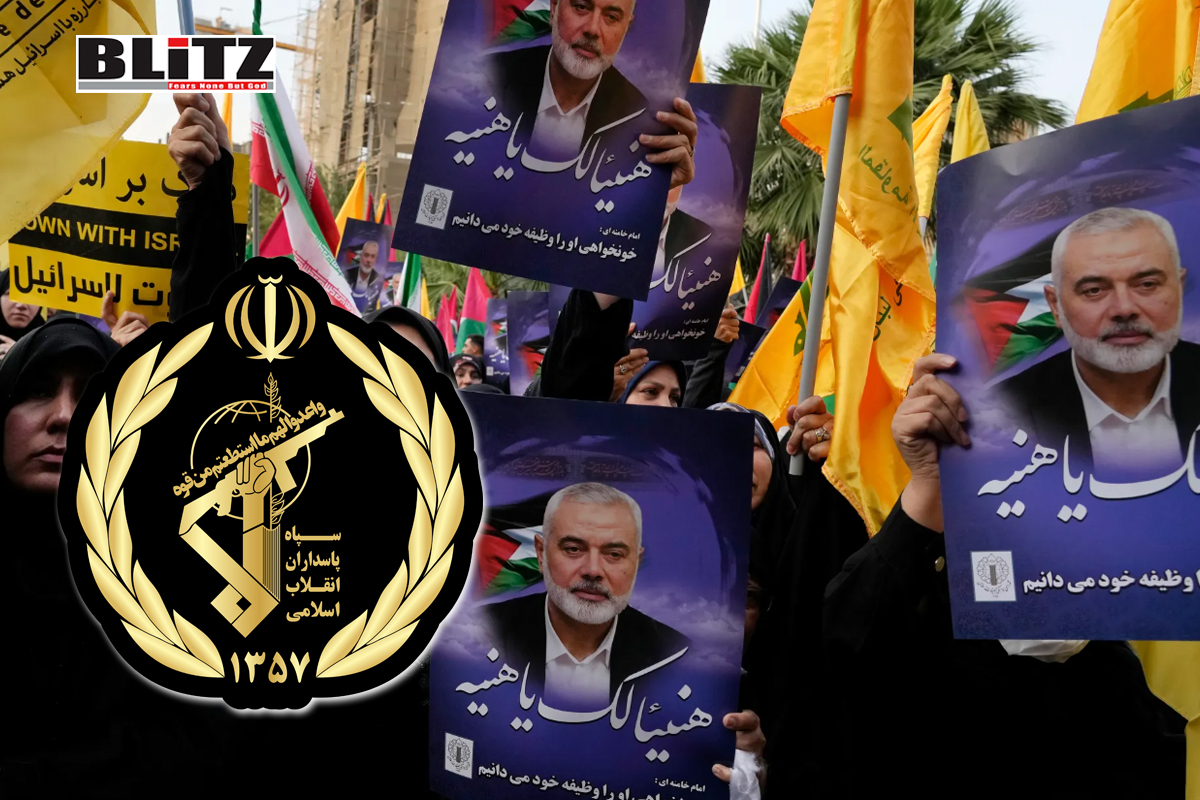Iran accuses Israel, US of assassinating Ismail Haniyeh
- Update Time : Monday, August 5, 2024

On August 3, 2024, Iran’s Islamic Revolutionary Guard Corps (IRGC) unveiled startling details about the assassination of Ismail Haniyeh, the political chief of Hamas, which occurred earlier this week in Tehran. The IRGC’s statement points to a sophisticated attack involving a “short-range projectile with a warhead of about seven kilograms.” According to the IRGC, the assault was orchestrated by Israel, with the backing of the United States, intensifying an already volatile situation in the Middle East.
In its declaration, the IRGC described the attack on Haniyeh as a meticulously planned operation, blaming Israel’s “Zionist regime” and the “criminal government of America” for the assassination. The IRGC’s narrative frames the incident as part of a broader pattern of aggression from the US and Israel towards Iran and its allies.
The IRGC’s investigation reportedly determined that the projectile was fired from a location outside Haniyeh’s residence, suggesting a high degree of precision and premeditation. This method contrasts with earlier reports by the New York Times, which cited Middle Eastern sources claiming that Haniyeh was killed by a remotely detonated bomb that had been smuggled into the guesthouse several months before the attack.
The allegations have sparked a series of denials and reactions from the involved parties. Israeli officials, consistent with their previous stance, neither confirm nor deny their involvement, though they have regularly expressed their intention to eliminate Hamas operatives amid ongoing conflicts in Gaza. US Secretary of State Antony Blinken firmly stated that Washington was “not aware of or involved in” the assassination, countering Iran’s accusations.
Despite these denials, the assassination has exacerbated the region’s fraught security environment. The conflict between Israel and Hamas, marked by a surge in violence since last October’s incursion by Hamas fighters into Israel, has already caused extensive destruction and significant loss of life. The IRGC’s claim has further inflamed tensions, prompting severe responses from both sides.
Iran has vowed to exact “harsh punishment” on Israel for the killing of Haniyeh. This declaration of intent signals a potential escalation in regional hostilities. The IRGC’s statement also highlights Iran’s readiness to retaliate, placing its military on high alert. This threat of retaliation is particularly concerning given the recent history of confrontations between Iran and Israel.
The US, in its role as Israel’s primary ally, has responded by increasing its military presence in the region, adding another layer of complexity to the situation. The decision to send additional military assets is likely aimed at deterring potential Iranian retaliation and maintaining regional stability.
The previous major escalation between Israel and Iran in April 2024 saw Tehran launching a missile and drone attack on Israeli targets. Although Israeli officials claimed minimal damage from the attack, it demonstrated the high stakes involved and the potential for rapid escalation in the region.
The assassination of Haniyeh can be viewed as part of the broader, ongoing conflict between Iran and Israel, which has been marked by periodic escalations and proxy confrontations. The death of a high-profile figure like Haniyeh not only impacts the immediate security dynamics but also has potential long-term implications for regional stability.
The complex interplay of regional alliances and conflicts makes the future trajectory uncertain. The ongoing conflict between Israel and Hamas, combined with Iran’s assertive stance, underscores the precarious nature of Middle Eastern geopolitics. Any further escalation could have widespread repercussions, affecting not only the immediate parties involved but also the broader international community.
The assassination of Ismail Haniyeh, as reported by the IRGC, has intensified the already volatile situation in the Middle East. With Iran accusing Israel and the US of orchestrating the attack and vowing retaliation, the region stands on edge. The involvement of major international players and the potential for further escalation underscore the gravity of the situation. As the international community watches closely, the next steps by the involved parties will be crucial in determining the trajectory of the conflict and regional stability.











